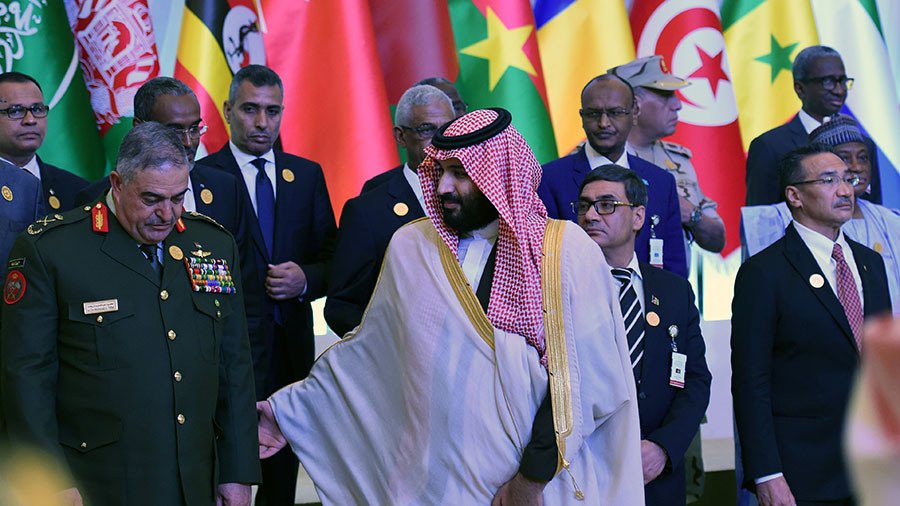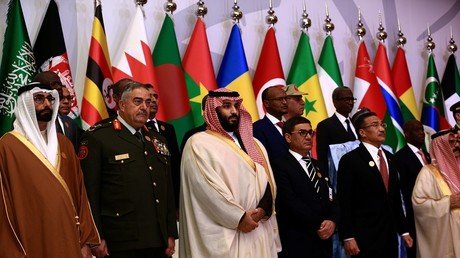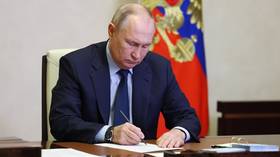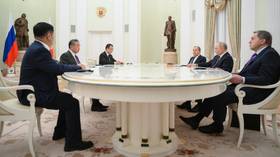'Saudi Crown Prince Mohammed bin Salman is no less extreme than his father’

The Saudi crown prince is not a moderate leader, he cannot afford to be, as he has to move quickly to save Saudi Arabia from its impending economic and strategic disaster, says Gregory Copley, of the International Strategic Studies Association.
Saudi Arabia hosted an Islamic Counter-Terrorism Summit on November 26 in Riyadh which is already being described as a meeting of an 'Arab NATO.'
The coalition consists of 41 countries and aims to unite them in fighting terrorism in the Arab world. However, all the members have Sunni-Muslim dominated governments what is leading to suspicions it's really an alliance against Iran - the regional Shia-Muslim leader.
The summit was opened by Saudi Crown Prince Mohammed bin Salman (MbS). Who is described in the mainstream media as a “revolutionary” politician and a “new hope” for Saudi Arabia? However, Gregory Copley, President of the International Strategic Studies Association says the Saudi royal might not be the reformer he appears to be.
RT: Media outlets call Prince Salman a moderate leader and one who can bring about change in Saudi Arabia. How much change can we expect to take place in the country?
Gregory Copley: We are already seeing massive change taking place in Saudi Arabia. Prince Mohammed bin Salman is not what you would call a moderate leader. He has been excessively zealous in acquiring power. His move from deputy crown prince to the crown prince was taken fairly ruthlessly; he really controls the government. His father is not in good health, the King. We know that he is strong, relentless leader, he takes risks. He knows that he has to move very quickly if he is to save Saudi Arabia from its impending economic and strategic disaster. So, he will not be moderate; he cannot afford to be moderate. The question is will his plan work or will he inspire a degree of backlash which might topple his grasp for the throne itself and will Saudi Arabia survive that.
RT: The crown prince promised to turn Saudi Arabia to moderate Islam. But there is widespread concern that such reforms would be approved by the conservative community of the country.Will the fundamentalists try to interfere in this plans?
GC: There is no question the fundamentalists will try to interfere with the plans of Crown Prince Mohammed bin Salman. However, he has hitched his star in a sense to the US government, to Donald Trump, as his only major global ally and President Trump has insisted that Saudi Arabia abandon its financing of terrorism and abandon its proselytization of extreme versions of Wahhabis Islam. Crown Prince Mohammad bin Salman will have to pursue that line; he will face opposition; he is trying to quell that opposition right now. But the question remains whether he can survive this politically or, in fact, physically, will there be attempts on his life.
RT: Despite, bin Salman being labeled as a progressive, his stance on Yemen or Iran appears to be as tough as his father’s. Do you expect any change on that front?
GC: Crown Prince Mohammed is not any more or less extreme than his father King Salman is on Yemen or the issues in Syria and Iraq. In fact, the policies attributed to the King were those designed by the [MbS] in recent years. The then deputy crown prince was in charge as the Minister of Defense, for example, of proselytizing the war in Yemen. He started the war on Yemen, and that precipitated the massive financial and economic disaster which is facing the kingdom right now, compounding the decline in oil prices and the massive overspending of the country. What we’ve seen, in essence, in the last couple of years is a 40 percent reduction in Saudi Arabia’s foreign exchange reserves …In essence, he has got four or five years of foreign exchange reserves. The crown prince is also undertaking a range of other measures to curtail Saudi Arabia’s massive expenditure. The first thing, he is trying to do is to wean Saudi Arabia off its dependency on oil and gas. He is trying to wind down the cost of military operations in Yemen and elsewhere. The reality is that he can’t really control the war in Yemen now, but he is trying to step back from it. That is unlikely to happen. But what we will see is a result which is worst for Saudi Arabia than when he started the war a couple of years ago. Yemen will divide into two parts. The northern part will be implacably hostile to Saudi Arabia in the future. And basically Saudi Arabia will still be in a poor financial situation…














